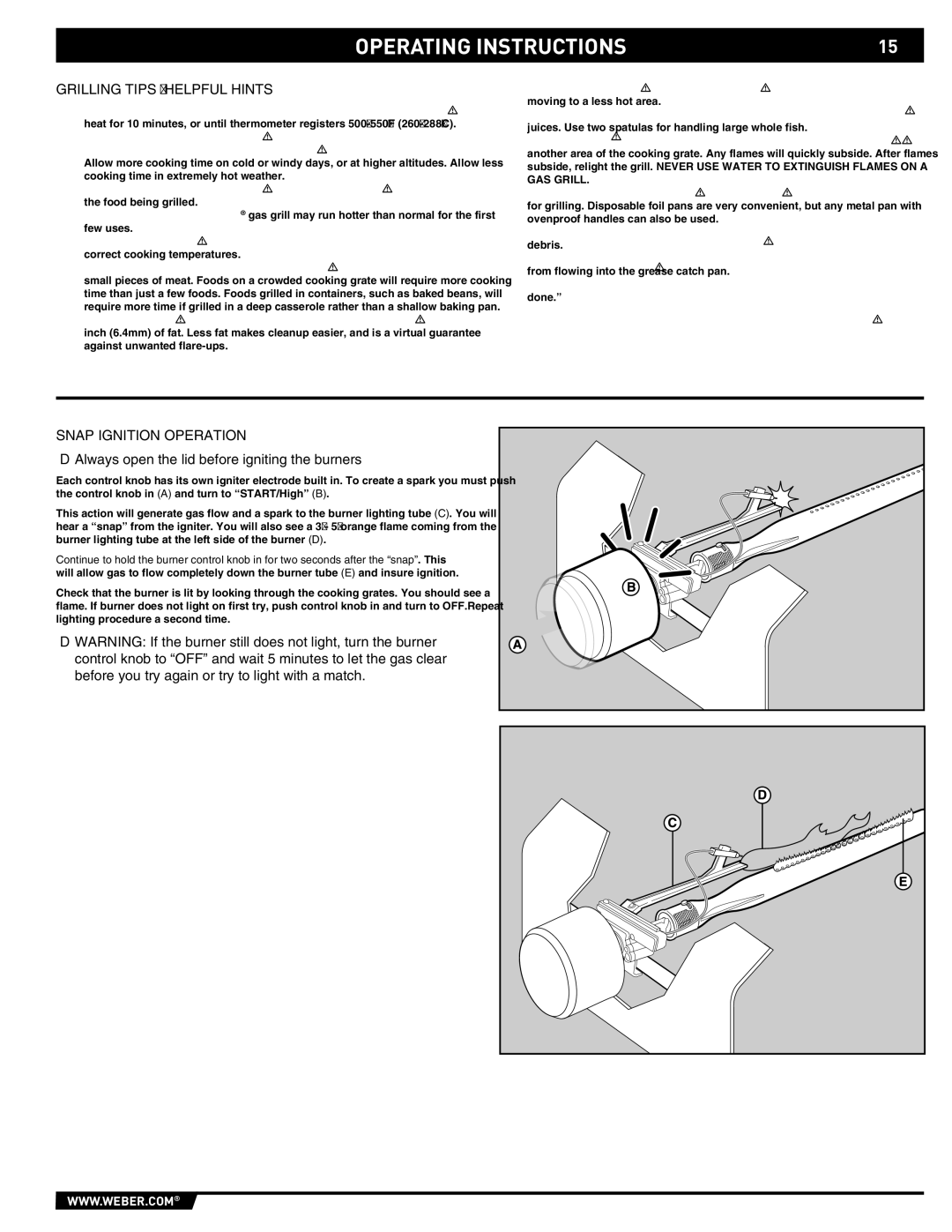
operating Instructions | 15 |
|
|
Grilling Tips & Helpful Hints
•Always preheat the grill before cooking. Set all burners on “HI” heat and close lid; heat for 10 minutes, or until thermometer registers
•Sear meats and cook with the lid down for perfectly grilled food every time.
•Grilling times in recipes are based on 70˚F (20˚C) weather and little or no wind.
Allow more cooking time on cold or windy days, or at higher altitudes. Allow less cooking time in extremely hot weather.
•Grilling times can vary because of the weather, or the amount, size and shape of the food being grilled.
•The temperature of your Summit® gas grill may run hotter than normal for the first few uses.
•Grilling conditions may require the adjustment of the burner controls to attain the correct cooking temperatures.
•In general, large pieces of meat will require more cooking time per pound than small pieces of meat. Foods on a crowded cooking grate will require more cooking time than just a few foods. Foods grilled in containers, such as baked beans, will require more time if grilled in a deep casserole rather than a shallow baking pan.
•Trim excess fat from steaks, chops and roasts, leaving no more than a scant ¼ inch (6.4mm) of fat. Less fat makes cleanup easier, and is a virtual guarantee against unwanted
•Foods placed on the cooking grate directly above burners may require turning or moving to a less hot area.
•Use tongs rather than a fork for turning and handling meats to avoid losing natural juices. Use two spatulas for handling large whole fish.
•If an unwanted
•Some foods, such as a casserole or thin fish fillets, will require a container for grilling. Disposable foil pans are very convenient, but any metal pan with ovenproof handles can also be used.
•Always be sure the bottom tray and grease catch pan are clean and free from debris.
•Do not line the
•Using a timer will help to alert you when
Snap Ignition Operation
mAlways open the lid before igniting the burners
Each control knob has its own igniter electrode built in. To create a spark you must push the control knob in (A) and turn to “START/High” (B).
This action will generate gas flow and a spark to the burner lighting tube (C). You will hear a “snap” from the igniter. You will also see a 3˝ - 5˝ orange flame coming from the burner lighting tube at the left side of the burner (D).
Continue to hold the burner control knob in for two seconds after the “snap”. This will allow gas to flow completely down the burner tube (E) and insure ignition.
Check that the burner is lit by looking through the cooking grates. You should see a flame. If burner does not light on first try, push control knob in and turn to OFF.Repeat lighting procedure a second time.
mWARNING: If the burner still does not light, turn the burner control knob to “OFF” and wait 5 minutes to let the gas clear before you try again or try to light with a match.
www.weber.com®
